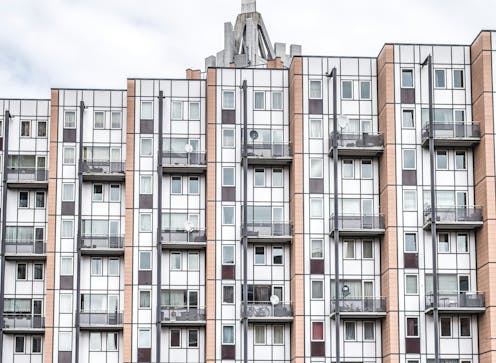
This week the New South Wales government announced it would introduce legislation that ensures renters are offered convenient, fee-free options to pay their rent.
Author
Linda Przhedetsky
PhD Candidate, Faculty of Law, University of Technology Sydney
The announcement is just one of many state and territory reforms that aim to address issues arising from the use of rental technology platforms.
In recent years these platforms and the landlords who use them have come under fire for intruding on renters' privacy and charging additional fees. While practices such as "rent bidding" have already been outlawed around Australia, governments are now starting to turn their attention to other harmful practices facilitated by new technologies.
Action on these issues is long overdue, and there's much more that needs to be done to ensure rental technology platforms actually benefit consumers.
An expanding industry
A wide range of digital technology platforms are used to facilitate the use, trading, operation and management of real estate assets. A well-known example is AirBnb, a technology platform that facilitates short-term rentals by connecting hosts with guests.
The property technology industry in Australia is rapidly expanding. In 2023, there were more than 478 products, start-ups and established companies ranging from marketing tools to data analytics platforms. This was up from 188 in 2019.
A portion of these companies make services typically designed to be used by renters, real estate agents or landlords.
A major selling point of rental technology platforms is that they promise to streamline a range of processes. To renters, these technologies are billed as quick, easy and effective ways to submit property applications, request maintenance or pay rent.
If designed well, these platforms can certainly offer convenience. But many have expressed dissatisfaction with rental technology businesses that pressure renters to pay for costly background checks, collect too much personal data, or use opaque algorithms to "score" applicants.
People who struggle to access or use technologies may also find these platforms difficult to use. This makes it harder for them to access an essential service.
Some 41% of renters report feeling pressured to use a third-party rental technology platform to apply for a property. And 29% say they have opted not to apply for particular rentals because they do not trust rental technology platforms. This suggests that the use of these technologies may sometimes deter, rather than attract, applicants.
Additional fees
Over 30% of Australians rent their homes, a figure that continues to grow as people find themselves priced out of home ownership. Rising rents and the overall increase in the cost of living have put many renters under substantial financial pressure.
With this in mind, it's concerning that some renters have found themselves with little choice but to use rental technology platforms that charge fees to process rental payments.
For example, renters using a popular platform called Alio are typically charged between 0.25% to 1.50% to make automated rental payments, depending on the method of payment they use. A rough estimate shows that a household paying the median weekly rent (A$627 per week) on a fortnightly basis might see themselves paying between $81.51 and $489.06 in additional fees each year.
As required by law, Alio does offer a fee-free option to pay rent. But this option is highly inconvenient: it requires renters to enter their bank details anew every month.
The fee-free options offered by some other rental technology platforms are equally inconvenient. They include paying rent in cash at the local post office.
For renters who have been asked to use a rental payment platform, this may mean spending additional time and effort every time they pay their rent to avoid paying additional fees.
The NSW government already requires lessors to offer fee-free ways to pay rent (similar protections are legislated in other states and territories). However, the key element of this week's announcement is a commitment to making sure these fee-free methods are actually convenient. This should hopefully close the legislative loophole that is enabling these rental technologies to unfairly profit at renters' expense.
While the draft legislation is yet to be seen, these reforms might see renters reverting to tried and tested payment methods such as bank transfers and bypassing rental technology payment platforms altogether.
Effective enforcement
Introducing laws that ensure renters have access to convenient, fee-free ways to make rental payments is a no-brainer. The next step is ensuring these laws are enforced effectively.
To achieve this, the regulator must be well resourced to carry out compliance and enforcement activities that ensure lessors and rental technology businesses comply with these protections.
Beyond these reforms, there is more work to be done to ensure renters are effectively protected from a range of harms that are created or exacerbated by rental technology platforms.
Issues such as discrimination and unfair treatment through rental technology platforms warrant further attention.
The key challenge for governments and regulators is to keep up with technological developments so they can identify and address issues as they arise.
![]()
Linda Przhedetsky is a Board Member at the NSW Tenants' Union, and is a member of the NSW Fair Trading's Industry Reference Group on Protecting Renter Information. She receives funding from the Australian Housing and Urban Research Institute.






